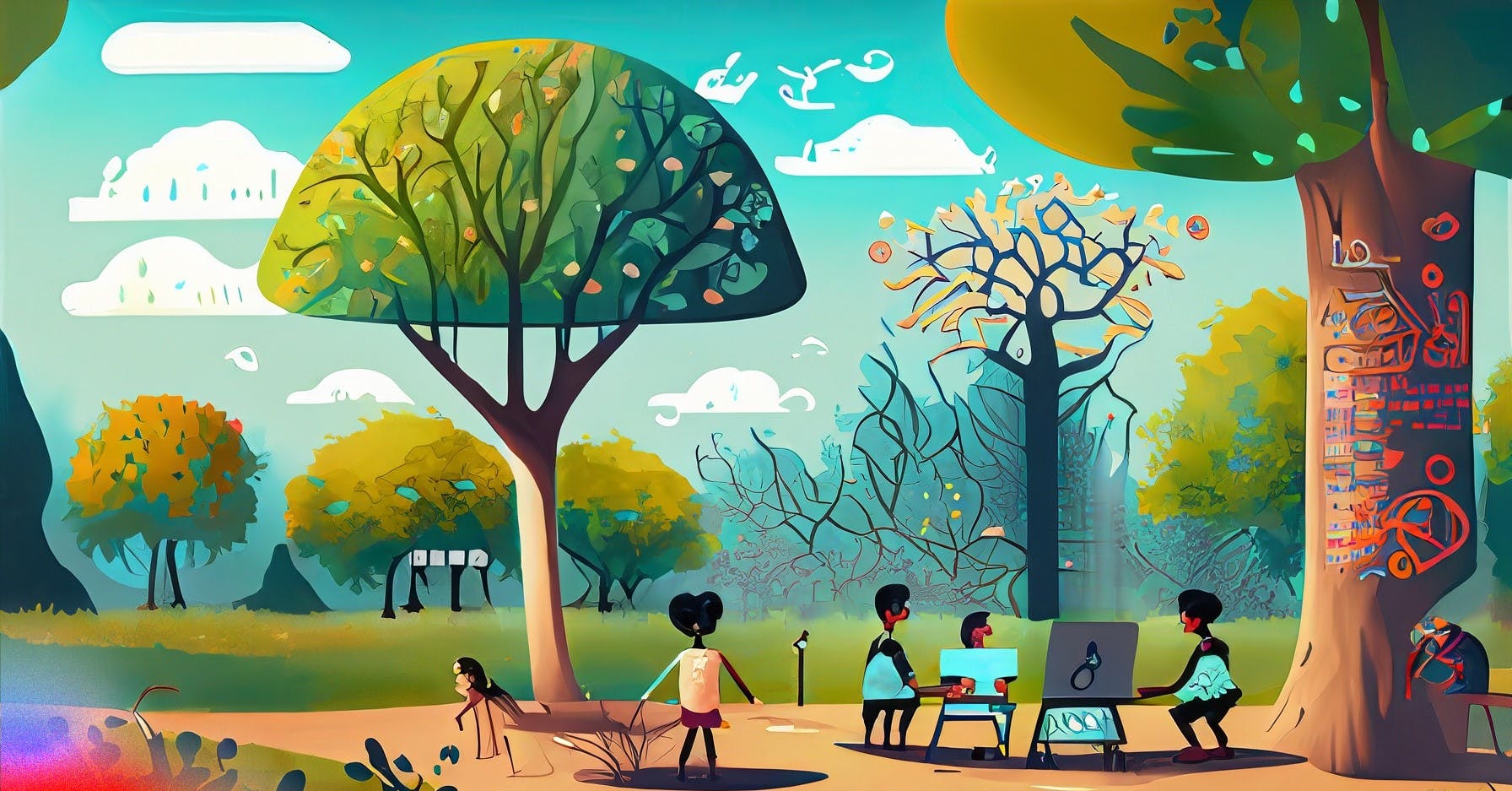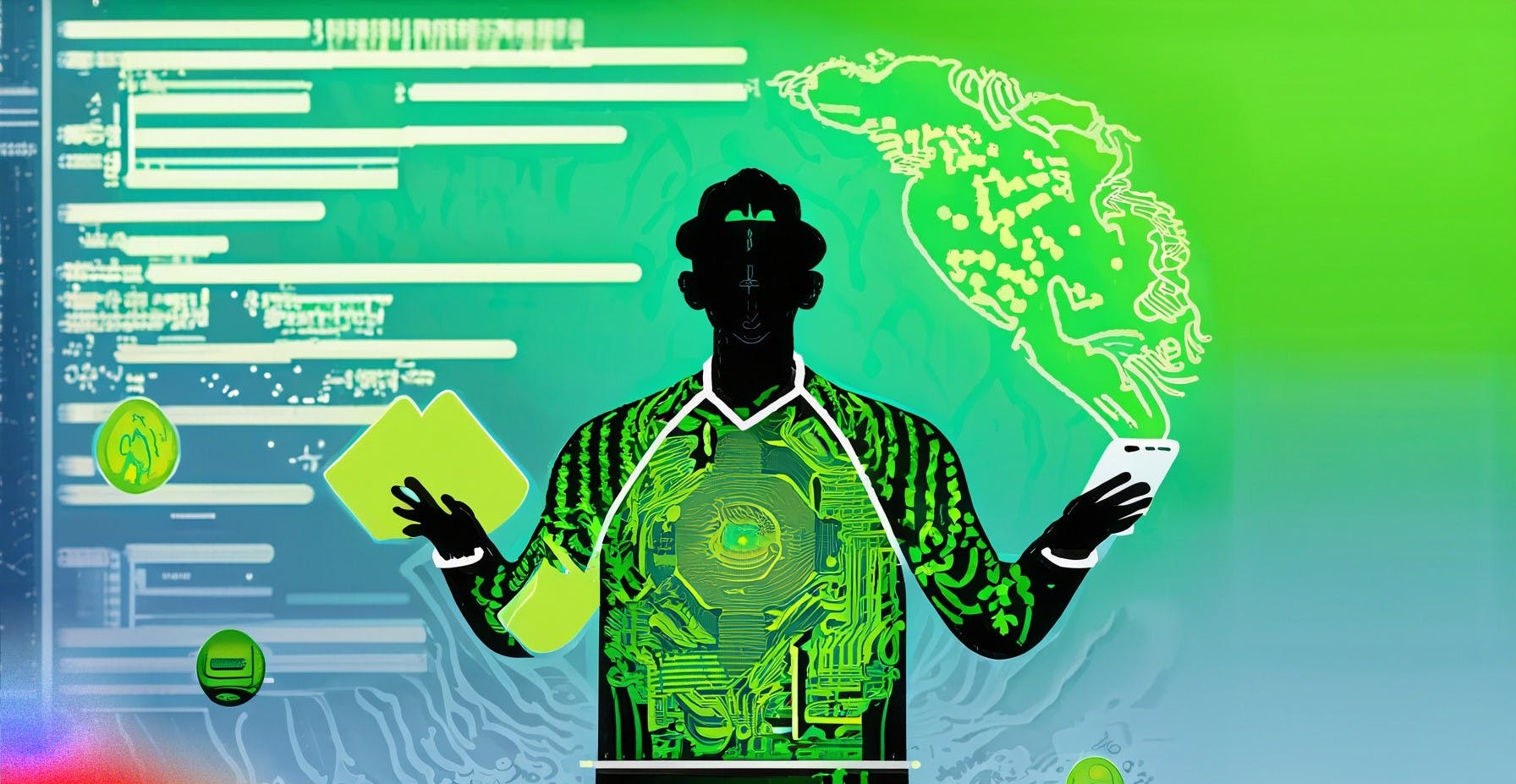Low-Code in Education: Fostering Digital Literacy and App Creation
Empowering Rural India: Low-Code Learning for Innovation and Digital Literacy
Introduction
As I was reading about the technological advancements reshaping education, I couldn't help but marvel at how low-code development is playing a pivotal role in fostering digital literacy and empowering students to become creators rather than just consumers of technology. In a country like India, where technology is rapidly transforming various sectors, integrating low-code into education is proving to be a game-changer.
India's journey into the digital age has been remarkable, with several historical initiatives propelling its growth in the technology landscape. From the ambitious "Digital India" campaign to the "Make in India" initiative, the nation has set its sights on embracing innovation and technology-driven solutions. With a large youth population, India is in a prime position to leverage tools like low-code to accelerate digital literacy and empower the next generation of innovators.
Statistics Illuminate the Progress
India's digital transformation is evident in the numbers. According to recent statistics, the number of internet users in India is projected to reach over 900 million by 2025, showcasing the increasing digital penetration across the country. This surge in connectivity provides an ideal environment for integrating low-code development in education.
Empowering the Youth
In the words of renowned Indian computer scientist and entrepreneur N. R. Narayana Murthy, "The future belongs to those who empower themselves with the tools of technology." Low-code platforms offer students an accessible entry point into the world of programming and app development. As they explore the drag-and-drop interfaces and visual elements, they develop problem-solving skills and learn to think algorithmically.
Imagine a student in a remote village using a low-code platform to build a simple educational app tailored to the needs of their community. This not only empowers them with technical skills but also encourages a sense of ownership and contribution. As they witness their creations making a tangible impact, their confidence and curiosity grow.
Digital Literacy for All
Low-code tools are democratizing app development and promoting digital literacy, even in areas with limited resources. As philosopher and educationist Rabindranath Tagore once said, "The highest education is that which does not merely give us information but makes our life in harmony with all existence." Low-code education aligns with this ethos, enabling students to bridge the gap between theoretical knowledge and real-world applications.
Learning Low-Code in India: Empowering Digital Literacy and Innovation
In the age of rapid technological advancement, learning to code has become a powerful means of empowerment and creativity. However, not everyone has access to traditional programming resources or the time to embark on lengthy coding journeys. This is where the concept of "low-code" programming comes into play – a method that allows individuals to build applications with minimal coding effort. In a diverse country like India, where digital literacy is fast becoming a necessity, low-code programming offers a promising pathway for individuals from all walks of life to harness the potential of technology. Let's explore how people across India are embracing this innovative approach to learn coding and create impactful solutions.

Online Learning Platforms
Coursera: Many online platforms offer courses on low-code development, and Coursera is one of them. It collaborates with universities and experts to provide comprehensive courses that cover various low-code platforms, tools, and applications.
- Udemy: Udemy hosts a range of low-code development courses, both for beginners and more experienced learners. These courses often include practical projects to reinforce learning.
Low-Code Platform Documentation and Tutorials
- Many low-code platforms, like OutSystems, Mendix, and Microsoft Power Apps, offer extensive documentation and tutorials on their official websites. These resources can guide learners through the basics of using their platforms effectively.
YouTube Tutorials and Channels
- YouTube hosts a wealth of video tutorials on low-code programming. Channels like "Traversy Media" and "Academind" offer easy-to-follow tutorials on various programming and development topics, including low-code development.
Local Community Centers and Tech Workshops
- Many local community centers and NGOs organize digital literacy and technology workshops. These workshops may include sessions on low-code programming, making them accessible to people in rural areas.
Tech Bootcamps and Hackathons
- Tech bootcamps and hackathons, such as those organized by organizations like "HackerEarth" and "TechGig," often include low-code challenges. These events provide hands-on experience and opportunities to learn from mentors.
Educational Institutions and Coding Clubs
- Some educational institutions and coding clubs offer workshops or elective courses on low-code development. These resources are particularly beneficial for students who want to enhance their programming skills.
Online Coding Communities
- Online platforms like Reddit and Stack Overflow have communities dedicated to programming. Learners can ask questions, seek guidance, and find resources related to low-code programming.
Community Webinars and Meetups
- Keep an eye out for webinars and meetups organized by tech enthusiasts, coding communities, or industry experts. These events often cover a wide range of topics, including low-code programming.
Social Media Groups
- Joining social media groups focused on technology and programming can connect learners with others who share similar interests. These groups often share resources, tips, and insights on low-code development.
Self-Study with Documentation
- Some low-code platforms offer extensive documentation and learning resources. Self-learners can dive into these materials to understand the platform's features and capabilities.
Catalyzing Innovation
Dr. APJ Abdul Kalam, the visionary former President of India and a prominent aerospace scientist, once stated, "The purpose of education is to make good human beings with skill and expertise." Low-code development nurtures these skills and expertise. Take, for instance, a student who's passionate about environmental conservation. With low-code, they can create an app that educates users about sustainable practices, helping them channel their passion into a concrete solution.

Inspiring Creativity
The words of Steve Jobs, co-founder of Apple Inc., resonate deeply: "Creativity is just connecting things." Low-code platforms act as connectors, allowing students to piece together different components and ideas to build functional applications. The process of creation sparks creativity and encourages students to explore innovative ways to solve problems.
A Glimpse into the Future
In India's journey towards a digital future, low-code education is a stepping stone. As per a hypothetical projection, by 2030, we might witness a significant rise in the number of student-developed apps addressing diverse challenges, from healthcare to education and beyond. These apps could revolutionize how communities access information and services, fostering a culture of innovation and collaboration.

Conclusion
As I delve into the world of low-code development in education, I am struck by the transformative potential it holds. India's rich history of technological initiatives, combined with the passion and creativity of its youth, positions the nation at the forefront of this revolution. Through digital literacy and app creation, low-code empowers students to shape a better future, one line of code at a time. It's a journey I am excited to be a part of, witnessing the birth of a generation of empowered creators.
As philosopher Confucius once wisely stated, "Education breeds confidence. Confidence breeds hope. Hope breeds peace." With low-code in education, India is nurturing not only technical skills but also a sense of confidence and hope, paving the way for a more digitally inclusive and innovative society.